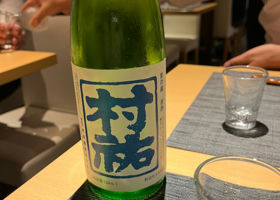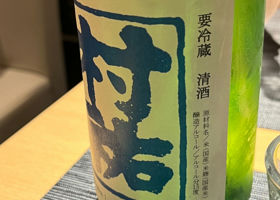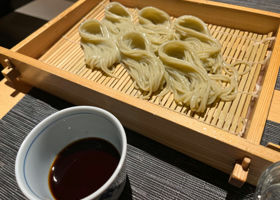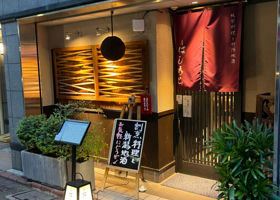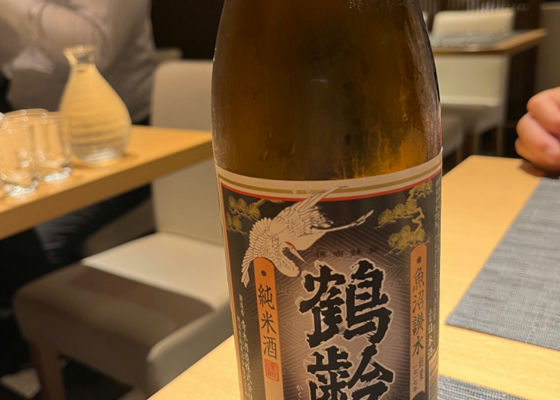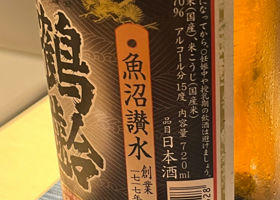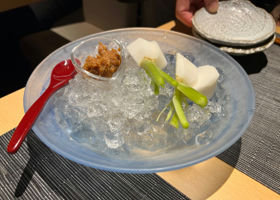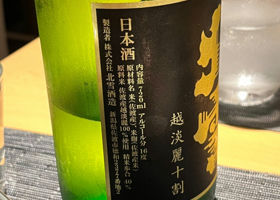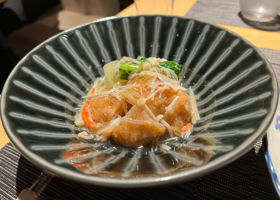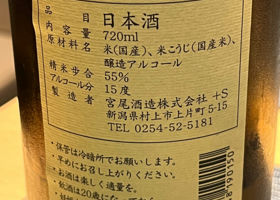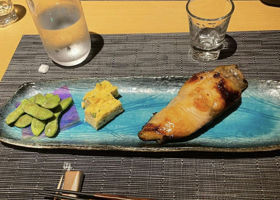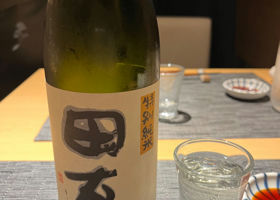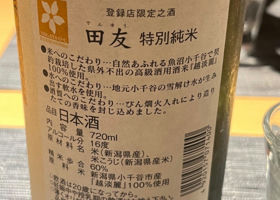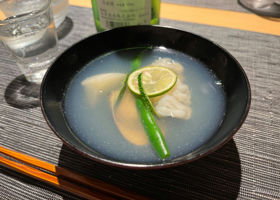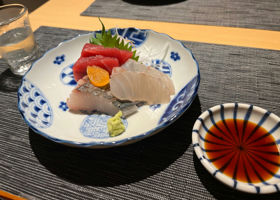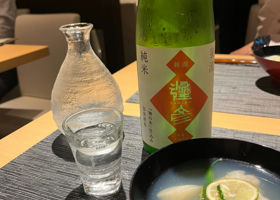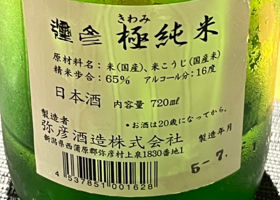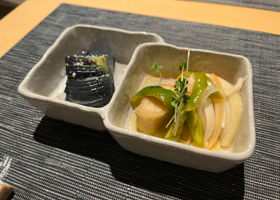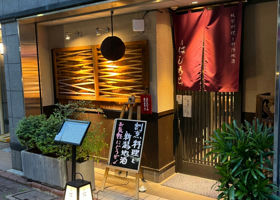Timeline
しんしんSYWhat to pair with hegi-no-Soba
This one!
Murayu Summer Nama-zake, which I was curious about on the menu!
The taste on the palate was unexpected!
I expected it to be more fruity, but the sourness came to the fore!
The proprietress said it tasted like plums!
She was right!
Dip the hegi soba into the soba broth and eat it in one bite!
And then drink a cup of Murayu 🍶.
Two and a half hours went by in the blink of an eye ⏰.
We can't wait for the next 4th Sake Party!
I'm looking forward to your recommendation of the restaurant that you couldn't join us today 😀.
extensive knowledge
This is a seasonal limited edition of Murayu, a super-limited brand produced by the Murayu Sake Brewery from its original and innovative sensibility in pursuit of its own ideal taste. It is a summer draft sake brewed under the concept of being a delicious draft sake to drink in the coming hot season. The most distinctive feature of the Murayu series is its dignified sweetness, which is reminiscent of wasanbon, the finest sugar used to make high-grade Japanese confectionery. It has a subtle sweet aroma, a soft mouthfeel, and a perfect balance of gentle sweetness, rice flavor, and moderate acidity, with a mild aftertaste. If we were to compare it to a fruit, it would have the elegant and gentle taste of a peach.
Rice used: Undisclosed
Rice polishing ratio: Undisclosed
Alcohol content: 15 しんしんSYWe were told that there was only one course left, hegisoba.
Then, I asked him to order a simple side dish to refresh his palate!
The sake was Tsururei Classic Black Label by Aoki Shuzo, a Keio brewery!
It was my first time to drink this!
It is a light and dry sake!
We were getting full by now!
I chose the sake to go with the hegi soba!
What is it?
Knowledge
Tsururei, a light, dry Niigata sake, has introduced a new Junmai-shu, a year-round product. Tsururei's junmai sake has mainly been the limited edition "Junmai Mukashi" series, and there was no such product as a year-round junmai sake. However, since last year, it has been sold on a trial basis only in Niigata Prefecture and some stores in Tokyo, and now it is finally available nationwide.
Sweetness: Dry
Rice: Koshitanrei and Gohyakumangoku
Rice polishing ratio: 70%.
Alcohol content: 15.5
Sake meter degree: Not disclosed
Acidity: Not disclosed 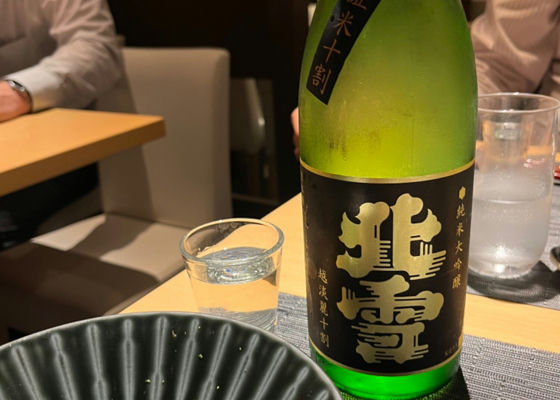
しんしんSYA dish of freshly fried cod with a generous portion of crab sauce!
What would you pair this with?
Kitayuki Junmai Daiginjo Koshi-tanrei!
The only Junmai Daiginjo of the day, with a rice polishing ratio of 40
A clear and tasteless sake to go with the light flavored dishes 🍶.
I still love this kind of sake ❤️
I have never been to Sado Island, so I hope to visit there someday on a trip!
extensive knowledge of this kind of sake
Limited Edition Daiginjo A Category (Polishing ratio under 40%) Gold Prize at the 16th "All-American Sake Competition 2016".
The 14th "All-American Sake Competition 2014" Daiginjo A category (Polishing ratio under 40%) Silver Prize
Daiginjo A (Polishing ratio under 40%) Silver Prize at the 12th All-American Sake Competition 2012.
Daiginjo A (Polishing ratio under 40%) Gold Prize at the 11th All Japan Sake Competition 2011
Wineglass Delicious Japanese Sake Awards 2015
Gold medal in the Daiginjo-shu category
Wineglass Delicious Sake Awards 2014
Gold medal in Daiginjo-shu category
Wine Glass Delicious Sake Awards 2012
Highest Gold Award in Daiginjo-Shu Category
The ultimate sake rice produced in Niigata Prefecture, Koshitanrei and Gohyakumangoku are from the father's side and Yamadanishiki is from the mother's side. 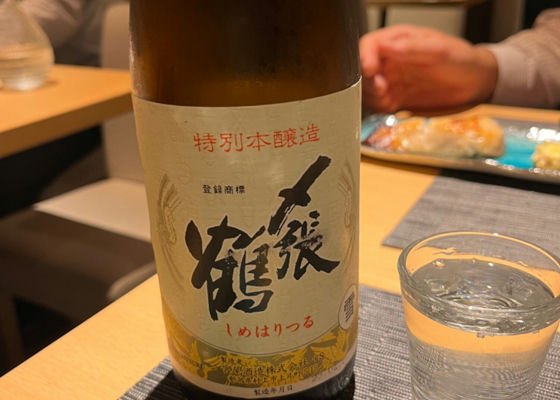
しんしんSYWe proceeded to drink Niigata sake, which I had never heard of!
The next dishes were saikyo-yaki, omelet and chamame!
Yamagata reminds me of dada-cha-mame, but Niigata's beans are called chamame (brown beans).
This sake was served to accompany the rich flavor of the Saikyo-yaki.
It is a light, dry, full-flavored sake.
It will not lose to the taste of the fish!
Looking at the menu of this restaurant, there is a larger selection of Honjozo than Junmai, Junmai Ginjo, and Junmai Daiginjo!
I'm not used to drinking honjozo, but when I tried it, it was surprisingly tasty!
I felt it was a good match with the food!
The proprietress is awesome👍!
extensive knowledge of the brewery
Soft aroma and light, full flavor. Elegant, fine mouthfeel and light taste. The mouthfeel is full and soft with a light dry taste. Light and dry with a refreshing taste. Please enjoy its refreshing taste.
Specified name: Special Honjozo Sake
Alcohol 15%.
Sake meter degree +4
Acidity 1.3
Rice: Gohyakumangoku
Rice polishing ratio 55
Taste: light and dry しんしんSYClam and Hamo Soup and Sashimi with this Sake
Tatomo Tokubetsu Junmai
This is also a first for us!
It is a delicious sake with a deep flavor!
Everyone said it had a great aroma and was delicious!
Sake at a restaurant with good food is very special!
The proprietress's choice is a good one. ⭕️
extensive knowledge
We use all the "Koshitanrei" rice produced in Ojiya City, Niigata Prefecture, which is suitable for sake brewing.
We brewed this sake with the original full-bodied flavor of this rice, conveying our commitment to the raw materials. Please enjoy the taste of the fullness and elegance of the sake that is as good as the food it is served with. しんしんSYSake drinking party with friends from college started in September last year
This is the third time.
My friend introduced us to Daimon Hashimoto this time!
The owner is from Niigata and insists on Niigata sake.
We asked the proprietress to choose the sake to match the dishes!
The first sake to be paired with the appetizer was Yahiko Kyokyu Junmai Sake!
It is refreshing and easy to drink!
The party started with three members, but five of us joined this time!
It was an enjoyable evening meeting as we talked about topics other than sake!
Now, what will be the next sake?
We are looking forward to it!
extensive knowledge
This is a Junmai-shu version of Yahiko Shuzo's popular standard "Kyoku". A clean, dry junmai sake with a nice sharp taste.
Yahiko, which is the divine body of Mt. Yahiko, which is the body of a god. It is brewed with sake rice "Kami no mai" grown in its underground water "Kami no mizu" (divine water). Moromi is carefully fermented at low temperature for a long period of time, just like ginjo. The acidity is kept low and the spiciness is just the right amount to go well with meals. As a sake brewery that serves shrines, we do not brew eccentric sake, but rather small-batch sake in pursuit of "genuine national sake. RecommendedContentsSectionView.title
